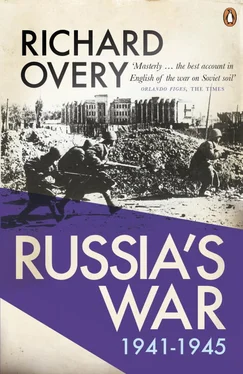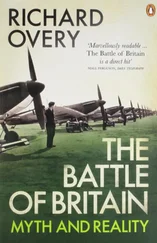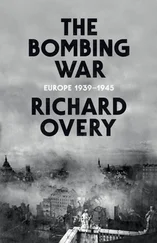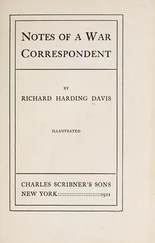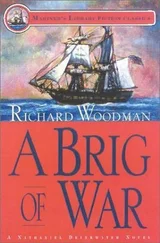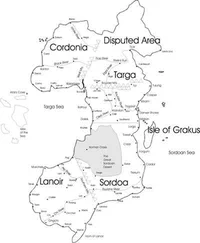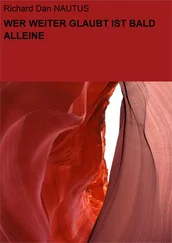Richard Overy - Russia's War
Здесь есть возможность читать онлайн «Richard Overy - Russia's War» — ознакомительный отрывок электронной книги совершенно бесплатно, а после прочтения отрывка купить полную версию. В некоторых случаях можно слушать аудио, скачать через торрент в формате fb2 и присутствует краткое содержание. Город: London, Год выпуска: 1999, ISBN: 1999, Издательство: Penguin Books Ltd, Жанр: military_history, на английском языке. Описание произведения, (предисловие) а так же отзывы посетителей доступны на портале библиотеки ЛибКат.
- Название:Russia's War
- Автор:
- Издательство:Penguin Books Ltd
- Жанр:
- Год:1999
- Город:London
- ISBN:978-0-14-192512-7
- Рейтинг книги:4 / 5. Голосов: 1
-
Избранное:Добавить в избранное
- Отзывы:
-
Ваша оценка:
- 80
- 1
- 2
- 3
- 4
- 5
Russia's War: краткое содержание, описание и аннотация
Предлагаем к чтению аннотацию, описание, краткое содержание или предисловие (зависит от того, что написал сам автор книги «Russia's War»). Если вы не нашли необходимую информацию о книге — напишите в комментариях, мы постараемся отыскать её.
[Contain tables. Best viewed with CoolReader.]
Russia's War — читать онлайн ознакомительный отрывок
Ниже представлен текст книги, разбитый по страницам. Система сохранения места последней прочитанной страницы, позволяет с удобством читать онлайн бесплатно книгу «Russia's War», без необходимости каждый раз заново искать на чём Вы остановились. Поставьте закладку, и сможете в любой момент перейти на страницу, на которой закончили чтение.
Интервал:
Закладка:
Stalin remains almost as elusive as ever. The crude popular image of Stalin, the triumphant and omnicompetent warlord, disappeared in 1956 when de-Stalinization began in earnest in the Soviet Union. But the absence of a full private archive, or even one based upon Stalin’s extensive public activities, forces historians to speculate on a great many aspects of his wartime leadership. Much more testimony is available now from Stalin’s political associates or from his military leaders than ever before, but the inner thoughts, hard to decipher even for those who knew him, remain shrouded. Even the circumstances of his death, discussed at greater length in Chapter 10, cannot be agreed upon among those who claim to have been witnesses.
This is not the only problem when discussing Stalin. The revelations of the wartime terror and the early military failures make Stalin an easy target in the search for culprits. Yet the concentration of fire on the dictator not only makes it difficult to understand how a man so apparently corrupt and brutalized could have led his country to victory at all, but also fails to take account of the wider system in which Stalin was lodged. The war effort was not the product of one man, nor could it be made to bend entirely to his will. The role of the Party in sustaining popular mobilization, of the apparatus of terror under the grotesque Beria or of the Red Army itself, the largest military force ever assembled, is as much a part of the history of the war as Stalin’s personal dictatorship. The mood of glasnost history has been one of recrimination and anger. When the dust has settled there will be time to assess Stalin and the system anew, both strengths and weaknesses. Stalin is an easy figure to hate but more difficult to understand, as history must.
Writing the story of the Soviet war has been a humbling experience. The debt that is owed to the many historians of the conflict, Russian and non-Russian, will quickly be evident. Soviet studies now provide a wealth of imaginative and exciting scholarship, much of it carried out at the very coalface of the subject, where the material is being dug out and shipped to the sunlight for the first time. Two veritable Stakhanovites deserve particular mention. Professor John Erickson and Colonel David Glantz have done more than any other Western scholars to communicate to the non-Russian world the fruits of Soviet and post-Soviet research. The account of the military struggle that follows would have been impossible without the careful reconstruction of the battle history carried out by both historians over the last twenty years.
The story of the Soviet war is humbling in another sense, too. The conflict was fought on such a gigantic scale and with such an intensity of feeling that conventional historical discourse seems ill-equipped to convey either very satisfactorily. The human cost, now estimated by some Soviet scholars to be as high as 43–47 million people, can only poorly be conveyed by statistics. 5It is surely no accident that poetry meant so much to ordinary Russians and that through poetry, not a mere recital of numbers, the awful reality of war could be expressed: ‘Tired with the last fatigue/ Seized by the death-before-death,/ His great hands limply spread,/ The soldier lies.’ 6Even Marshal Zhukov, remembered by those who served him as a coarse and brutal commander, read poetry in the midst of the carnage. A Tolstoy, a Nietzsche, perhaps might convey the essence of the suffering of the vast, tragic canvas on which that suffering was daubed. Little, perhaps nothing, of the experience of most Western historians will have prepared them to account for what they find in the history of Russia’s war.
The key to understanding that war lies with an understanding of Russia herself. It was not, of course, just ‘Russia’s war’. The Russian empire, and after it the Soviet Union, embraced a complex ethnic geography. In 1940 Russians made up only 58 per cent of the population. There were at least twenty other major nationalities, most prominent among them the Ukrainians and Belorussians, on whose territories in the western Soviet Union most of the war was fought out. The nationalities, though dominated by the Russian heartland, provided a rich and diverse set of cultures, steeped in an ancient history. These differences were also shaped by topography. The Soviet Union spanned the whole of northern and central Asia, from almost permanently frozen tundra wasteland in the north to the luxuriant farmlands of Transcaucasia in the south. The Soviet Union inherited a state that was as Asian as it was European.
It is essential to grasp this diversity to understand what it is that made Russia, and the Soviet Union, different from the Western world. That difference has often been ignored. It is still underestimated by many in the West, who see the region as a backward version of modern industrial society, just as it was played down by Communists and fellow-travellers of the 1930s and 1940s, who thought that Stalin had created a form of the modern Western state that was both more socially efficient and more just. That difference was greater still in the 1940s. ‘Few Western Europeans,’ wrote the German SS General Max Simon, ‘have any idea of the actual habits and mode of life of the Russians…’ 7The German attackers were already predisposed to assume that Soviet society was primitive, and, by the standards of the developed economies of the West, much of it was, at least in the countryside. But this was to misunderstand Russian society. It was not so much primitive as alien. The Soviet Union was not like Western Europe, and there is no reason why it should have been.
The war exposed many of the enduring features of Russian and Soviet culture. Soldiers were brutal because much of their experience of life was brutal and harsh. Their resilience and stubbornness, the toughness of both men and women, were the product of a bitter climate and extreme conditions of work. The coarser side of Russian life was evident in the routine of the labour camps or the discipline of the regiment or the factory. Yet ordinary people could also display a traditional sentimentality, founded in a powerful sense of both history and place. Some idea of how universal was that respect for the past, the feeling of rootedness, of belonging, can be gleaned from one among many stories of the war years told by the writer Ilya Ehrenburg. In the retreat of 1941 before the German onslaught, the curator of the Turgenev Museum in the city of Orel packed up the contents and placed them in a railcar. The centrepiece was a worn sofa upon which the famous writer had thought great thoughts. At every station the curator was faced with an angry crowd of refugees struggling to find space on the train to take them eastward. Each time he explained that the jumble belonged to the great Turgenev, and each time the mob relented. 8
This is a story that can be understood only in the wider context of a popular attachment to art that cuts entirely across boundaries of class or education. It fits ill with any idea of primitiveness. Locked away in the horrors of the Gulag camps, Aleksandr Solzhenitsyn could still recall a man who sang to him snatches of Schubert. 9The almost universal love of poetry has already been remarked. People were sentimental about the place they came from, about their way of life, even when conditions were grim. Soviet society was still, by the war, shot through with traditional modes of association, through tribe or clan or commune. The modernization imposed by the Communist Party in the 1930s had already begun to break down those ancient patterns of belonging, but not entirely so. The feeling can scarcely be described as nationalism, for there were too many nationalities for that to be coherent. Patriotism conveys it better, but not entirely, for the feeling which brought forth a remarkable endurance from the Soviet people is almost passive, fatalistic. One of the most famous verses to come out of the ‘Great Patriotic War’, from a poem about the comic hero Vasya Tyorkin, exactly captures the mixture of dull stoicism and historical awareness:
Читать дальшеИнтервал:
Закладка:
Похожие книги на «Russia's War»
Представляем Вашему вниманию похожие книги на «Russia's War» списком для выбора. Мы отобрали схожую по названию и смыслу литературу в надежде предоставить читателям больше вариантов отыскать новые, интересные, ещё непрочитанные произведения.
Обсуждение, отзывы о книге «Russia's War» и просто собственные мнения читателей. Оставьте ваши комментарии, напишите, что Вы думаете о произведении, его смысле или главных героях. Укажите что конкретно понравилось, а что нет, и почему Вы так считаете.
